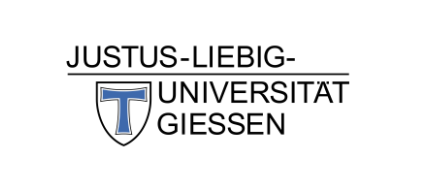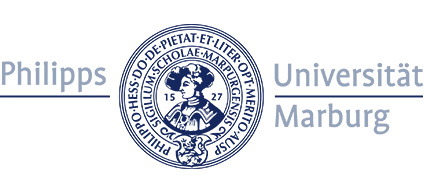Main Content
iGEM

iGEM (International Genetically Engineered Machine) is an international synthetic biology competition hosted by the eponymous iGEM foundation. This competition encourages students to push the boundaries of synthetic biology by using it to tackle complex problems of local and global scale. Following established engineering principles, hundreds of multidisciplinary teams build their own projects from the ground up and compete for a multitude of prizes in different focus areas. The pinnacle of this competition is reached every fall, when all of the teams come together to present their work.
Read more about the achievements of the Marburg iGEM teams in the last years:
2024 From Rainforest Deforestation to Sustainable Rubber: The Promise of Making Dandelions Easier to Engineer
The iGEM team is planning to introduce Taraxacum officinale as a novel plant chassis in the iGEM context and to elevate it as a sustainable alternative for natural rubber production by creating a new genetic part collection to overcome the lack of well-characterized genetic tools for Dandelion.
Prizes/ awards: Overgrad Grand Prize Winner, Best Agriculture Project, Best Part Collection (Overgrad), Best Plant Synthetic Biology (Overgrad), Best Wiki (Overgrad)
Please click here to be directed to the homepage.
Contributors
PI: Lars Matthias Voll
Instructors: Cedric Kilian Brinkmann, Julia Seufer, Michael Burgis, Hinrik Plaggenborg
Advisor: Rene Inckemann
Students: Hannah Becker, Rowena-Elen Günther, Yasoo Morimoto, Lilly Fajen, Amanta Seifried, Leon Wimbes, Julia Rinn, Alexander Kuhne, Adelia Manafov, Eva-Caroline Alberts, Lena Zanoni, Karlotta Hölzlwimmer, Merle Wagner, Lars Röttger, Dascha Khalfine, Fiona Jaeger, Simon Klute, Kevin Franzeck, Anne Schmitt, Caroline Rose Rümpler
2023 Expanding the Range of Transformable Non-Model Plants Through the Development of Synbio Tools for Agrobacterium
The iGEM team was able to refine plant transformation protocols for non-model species and managed to successfully transform Bambara groundnut - progress contributing to finding a solution for the risk of the climate change poses to the global food supply.
Prizes/ awards: Overgrad Grand Prize Winner, Best Plant Synthetic Biology
Please click here to be directed to the homepage.
Contributors
PI: Lars Matthias Voll (Primary PI), Anke Becker (Secondary PI)
Instructor: Julia Seufer
Advisors: Clemens Boehm, Cedric Kilian Brinkmann, Christian Rauch, Vinca Seiler, Rene Inckemann, Jan Lars Kalkowski, Michael Burgis, Hinrik Plaggenborg
Students: Hannah Becker (Student Leader), Yasoo Morimoto (Student Leader), Dascha Khalfine (Student Leader), Nathan Trausch, Lisa Reuter, Amanta Seifried, Melina Flakowski, Eric Liebrecht, Miguel Angelo Alves Moreira Lopes, Max Wurthmann, Johannes Merz, Karlotta Hölzlwimmer, Aidana Smagulova, Fiona Jaeger, Ilayda Mumcuoglu, Simon Klute
2021 OpenPlast – Establishing Cell-Free Systems from Chloroplasts as Rapid Prototyping Platforms for Plant SynBio
As a contribution to ensure stable food supply cell free systems from chloroplasts were developed offering the opportunity to reduce testing times for characterization of genetic constructs.
Prizes/ awards: Best Foundational Advance Project, Best Software Tool, Best Education, Best Integrated Human Practices, Best Measurement, Best New Basic Part, Best New Composite Part, Best Presentation, Best Safety & Security, Best Sustainability, iGEMers Prize
Please click here to be directed to the homepage.
Contributors
PI: Lars Matthias Voll, Henrike Niederholtmeyer
Instructor: Rene Inckemann
Advisors: Victoria Sajtovich, Aukse Gaizauskaite, Tanguy Chotel, Amir Pandi, Jan Lukas Krüsemann, Vinca Seiler, Lars Bröker, Hinrik Plaggenborg
Students: Sara Gilles (Student Leader), Jonas Freudigmann (Student Leader), Katarzyna Lipinska, Tristan Krause, Jessica Baumann, Yasoo Morimoto, Nadja Keil, Amon Becher, Clemens Boehm, Erik Christopher Bender, Pia Buchholz, Cedric Kilian Brinkmann, Tamina Zoe Kirsch, Sandra Clemens, Finn Wieland, Michael Burgis, Laura Andreas
2019 Green Revolution – Establishing the Fastest Growing Photothrophic Organism as a Chassis for Synthetic Biology
The phototrophic organism Synechoccus elongatus UTEX 2973 was established as a system for rapid design testing by restoring its natural competence and establishing the CRISPR/Cpf1 system.
Please click here to be directed to the homepage.
Contributors
PI: Lars-Oliver Essen (Primary PI), Lars Matthias Voll (Secondary PI)
Instructor: Rene Inckemann
Advisor: Torben Gutermuth
Students: Cedric Kilian Brinkmann (Student leader), Vinca Seiler (Student leader), Ting Hin Wong, Erik Christopher Bender, Maurice Mager, Chun-Ho Ip, Johanna Ellen Wallbaum, Robin Stei, Christian Keller, Felix Sippel, Joana Esslen, Marian Krämer, Annsophie Weber, Jonas Freudigmann, Wihan Adi, Michael Burgis, Hinrik Plaggenborg, Paula Müller, Lars Bröker
2018 Vibrigens- Accelerating Synbio: Establishing Vibrio natriegens as the New Chassis Organism for Synthetic Biology
The project was all about speed- the speed of Vibrio natriegens doubling. The iGEM team engineered two V. natriegens strains allowing to save time during cloning processes.
Prizes/ awards: Overgrad Grand Prize Winner
Please click here to be directed to the homepage.
Contributors
PI: Gert Bange (Primary PI), Georg Fritz (Secondary PI)
Instructor: Rene Inckemann
Advisors: Alexander Lepak, Tobias Wulsdorf, Hendrik Cooper, Pascal Pfister, Stefano Vecchione, Daniel Andreas Orlando Rotter, Carlo Klein, Doreen Meier
Students: Memdiha Muratoglu (Student leader), Daniel Stukenberg (Student leader), Jana Jung, Torben Gutermuth, Alexandra Seiffermann, Tobias Hensel, Andrej Mušikić, Carl Jonathan Weile, Josef Hoff, Benjamin Daniel, Anna Trodler, Franziska Müller, Daniel Bauersachs, Katrin Beuthert, Franziska Nousch, Benjamin Marchal, Carlos Helbig, Daniel Marchal
2016 SYNDUSTRY – Fuse. Produce. Use.
The project Syndustry led to the introduction of a novel “plug-and-play” production platform that is based on artificial endosymbiosis where cyanobacteria are employed.
Please click here to be directed to the homepage.
Contributors
PI: Gert Bange (Primary PI), Michael Bölker (Secondary PI)
Instructors: Tobias Erb, Nicolas Krink, Georg Fritz, Anne Christina Löchner, Max Mundt, Tarryn Miller
Advisors: Daniel F. Hurtgen, Lars-Oliver Essen
Students: Steffen Lütke (Student Leader), Christoph Kahle, Lena Schmidt, Maria Lindner, Patrick Gerlinger, Nikolai Huwa, Martin Lellep, Bastian Pook
2015 NUTRInity: Make the Gut a Better World!
The Marburg iGEM team invested opportunities to tackle malnutrition and overconsumption of food by developing different systems like engineered and cell-based particles able to produce dietary supplements.
Please click here to be directed to the homepage.
Contributors
PI: Gert Bange
Instructors: Victor Sourjik, Michael Bölker
Advisors: Oliver Schauer, Daniel F. Hürtgen, Nicolas Krink, Daniel Schindler, Anne Christina Löchner, Max Mundt
Students: Andreas Haerdlitschka, Matthias Franz, Maik Luu, Lisa Engelsberger, Sascha Grobe, Alexandra Richter, Tresor Kivoloka, Katrin Beuthert, Daniel Stukenberg, Anna Knoerlein, Andreas Feser
2014 SURF Synthetic Units for Redirecting Functionalities
The iGEM team focused on finding out more about proteins by analyzing the structural evolution of certain protein families using a computational approach.
Please click here to be directed to the homepage.
Contributors
Instructors: Michael Bölker, Gert Bange
Advisors: Florian Altegoer, Felix Dempwolff, Daniel Schindler
Students: Maik Luu, Domenica Martorana, Maximilian Staps, Ivan Grnja, Gwendolyn Patzer, Arno Fricke, Maria Gutschke, Sina Knapp, Roman Martin, Jonas Nies, Daniela Geist, Patrick Pausch, Roman Steinbach, Annika Nebel, Jan Christmann
2013 Phaectory: Antibodies Grown With Sunlight
The successful use of therapeutic proteins in clinical medicine finally depends on systems that can produce pure protein with correct posttranslational modifications at a low cost. The iGEM team invested the use of the sunlight-driven microalgae Phaeodaytylum tricornutum for antibody production.
Please click here to be directed to the homepage.
Contributors
PI: Gert Bange
Instructor: Michael Bölker
Advisor: Daniel Kleinsorge
Students: Alexander Grevel, Wiebke Dürichen, Domenica Martorana, Anne Pia Lutz, Franziska Kemter, Gwendolyn Patzer, Sandra Fries, Simon Dersch, Roman Martin, Mathias Diehl, Estefanía Muciño Castillo, Florian Drescher, Patrick Pausch, Marco Kühn, Sabine Rosskopf, Christian Muchowski, Dominik Beuter, Kristina Rau, Lucas Schneider
2012 "The Recombinator“: An Intelligent Genetically Engineered Slot Machine (iGESM)
The diversity of antibodies in the vertebrate immune system inspired the iGEM team to construct an automatic recombination system in E. coli that automatically will shut down after recombination was successful.
Please click here to be directed to the homepage.
Contributors
PI: Michael Bölker
Instructor: Oliver Leicht
Advisor: Carlos Acevedo
Students: Alexander Grevel, Wiebke Dürichen, Domenica Martorana, Anne Pia Lutz, Franziska Kemter, Gwendolyn Patzer, Sandra Fries, Simon Dersch, Roman Martin, Mathias Diehl, Estefanía Muciño Castillo, Florian Drescher, Patrick Pausch, Marco Kühn, Sabine Rosskopf, Christian Muchowski, Dominik Beuter, Kristina Rau, Lucas Schneider


